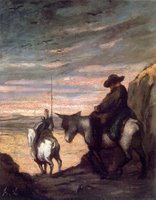Awake! Be Alert!
 When the season of Advent comes we often hear from the Gospel readings the summon "Be awake! Be Alert! The Kingdom is coming!" This often brings anxiety to those who think that the Kingdom of God will sweep over the metropolis and anyone it finds asleep or not doing good will suffer dire consequences. Far from it. The message of the Gospel is not the message of fear but a message of joy and anticipation.
When the season of Advent comes we often hear from the Gospel readings the summon "Be awake! Be Alert! The Kingdom is coming!" This often brings anxiety to those who think that the Kingdom of God will sweep over the metropolis and anyone it finds asleep or not doing good will suffer dire consequences. Far from it. The message of the Gospel is not the message of fear but a message of joy and anticipation.Jesus' message of salvation and hope will not be the message of Wallstreet or apocalyptic-themed Hollywood movies. It is a message that everyone longs to hear: "Every tear shall be wiped away...There will be no more death..." So what should our attitude be towards this message? One of calm and serenity, of peace and joy. And therefore, the "Awake! Be Alert!" call is not so much a summon to be on guard for something ominous that is coming but rather an invitation to an awareness that the goodness of God is happening as it is being proclaimed.






